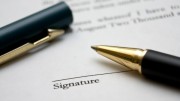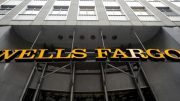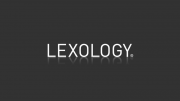Heads I win, tails you lose… and then you lose some more. That seems to be the story surrounding Bill Ackman’s disastrous near $4 billion loss in Valeant Pharmaceuticals.
Ackman’s pharmaceutical foray is mostly over after his hedge fund Pershing Square dumped all of its Valeant shares in mid-March at $11 apiece, or an over 90% loss, cementing one of Wall Street’s biggest-ever investment debacles. But a document released on Tuesday evening indicates investors in Ackman’s funds stand to lose even more.
Valeant may cost Pershing Square investors at least another $75 million, the hedge fund has estimated, due to an ongoing class action lawsuit in a California court accusing Ackman of insider trading when making a $3 billion investment in botox-maker Allergan in 2014. In that investment, Ackman bought Allergan shares in concert with a plan with Valeant CEO Michael Pearson to press a merger of the two companies.
Although Allergan was sold to a ‘white knight’ drugmaker called Actavis in the fall of 2014 for $66 billion in cash and stock, it netted Pershing Square a $2.6 billion profit and propelled the fund to a 37% net gain. Ackman personally made $1.1 billion, Forbes calculated at the time, mostly from Allergan-fueled performance fees.
NEW YORK, NY – NOVEMBER 10: CEO and Portfolio Manager Pershing Square Capital Management L.P. William Ackman (Photo by Bryan Bedder/Getty Images for The New York Times )
As this windfall was being booked, Allergan investors led by the State Teachers Retirement System of Ohio and the Iowa Public Employees Retirement System sued Ackman, accusing the hedge fund billionaire of insider trading. Those investors, who sold their Allergan shares in the months leading up to the unsolicited Ackman/Valeant takeover offer in April 2014, said they’d been harmed because Ackman was in possession of material nonpublic information surrounding the bid when building his position. Pershing Square contests these allegations.
In early 2015, after the Actavis/Allergan merger closed, Ackman bet the house on Valeant Pharmaceuticals and his M&A buddy Pearson, who’d just joined the three comma club himself. Ultimately, Valeant proved to be a house of cards, fueled by obscene drug price increases, highly leveraged acquisitions, and shoddy accounting. The company’s collapse has led to accusations of fraud and criminal investigations surrounding a specialty pharmacy channel revealed by investigative journalist Roddy Boyd. A year ago, Forbes Magazine published an investigation into Valeant, attributing the company’s heady rise and dramatic fall to its ultra-aggressive compensation plan.
Though the ugly history of Valeant is mostly written for Ackman, the class action insider trading case rages on in California courts.
In February, Ackman struck a deal with Valeant where the drugmaker would cover 60% of any costs from the class action suit, with Pershing Square covering the rest. Efforts to dismiss the case have so far failed. If a settlement or judicial claim emerges, Ackman’s loss-share with Valeant stipulates that he will forfeit his right to sue Valeant for Pershing Square’s staggering loss. As of now, Pershing Square believes it may be on the hook for $75 million, split between $29 million at it publicly traded investment vehicle Pershing Square Holdings, and the remainder from its private funds.
Ackman, though he booked immense performance fees from Allergan’s takeover, will not pay the prospective liability on his own. Instead, fund investors will share the potential liability on a pro rata basis. Of course, Ackman and his partners are the biggest investors in Pershing Square’s various funds, so they stand to be hit alongside LPs.
Nevertheless, even after billions of dollars in Valeant losses and hundreds of millions of dollars in Allergan-fueled performance fees paid to Ackman & Co., Pershing Square LPs and shareholders may still be reaching into their pockets. Pershing Square declined to comment. Valeant warns investors of its various prospective legal costs but has yet to set aside a reserve, filings show.
About Valeant, Ackman said on Tuesday: “My approach to mistakes is that I personally assume 100% of the responsibility on behalf of the firm while sharing the credit for our successes. While I and the rest of the Pershing Square team have suffered significant losses from this failed investment as we are collectively the largest investors in the funds, it is much more painful to lose our shareholders’ money, and for this I deeply and profoundly apologize.”
The Pershing Square document – its annual report – also reveals other nuggets from the inner workings of one of the biggest hedge funds in the world.
Despite a 13.5% net loss in 2016, which followed a 20.5% net loss a year prior, Pershing Square and Ackman are finding life in hedge fund land to be quite lucrative. Pershing Square’s 18 partners and top investment staff, led by Ackman, received $101 million in management-fee-related pay in 2016, despite losing billions. A year earlier, as bonus checks were cut for the fund’s strong 2014, these partners made over $500 million.
Pershing Square’s $75 million insider trading liability and the fund’s steady hum of management fees appear to be another prime example of how hedge funds accrue most of the benefits from their risky investments, not limited partners. The New York Times’s James Stewart recently calculated Pershing Square Holdings insiders like Ackman have accrued 72% of the funds gains since it was created in 2012.
Institutional investors are presently demanding cuts to hedge fund fees, and firms are shutting their doors at a record pace. Pershing Square recently changed its fee structure to lower fees for mediocre performance but take a greater cut of gains exceeding 16.5%. The hedge fund also has a high water mark, meaning Ackman & Co. won’t receive performance fees until Pershing Square recovers its pre-Valeant collapse highs. The high watermark for Pershing Square Holdings is $26.37, over 40% above its current net asset value.
Bill Ackman was also among the biggest hedge fund losers on Forbes 2016 billionaires list, shedding $600 million in his net worth in 2016 and falling off the Forbes 400 list of the richest people in the United States. In recent yeas, as the wealth of quantitative hedge fund managers has risen, stock pickers like Ackman and macro-oriented investors have seen their wealth drop alongside stagnating performance and dwindling assets.
For more: See colleague Nathan Vardi’s interview on The Rise And Decline Of The Hedge Fund Billionaire
Source: www.forbes.com




